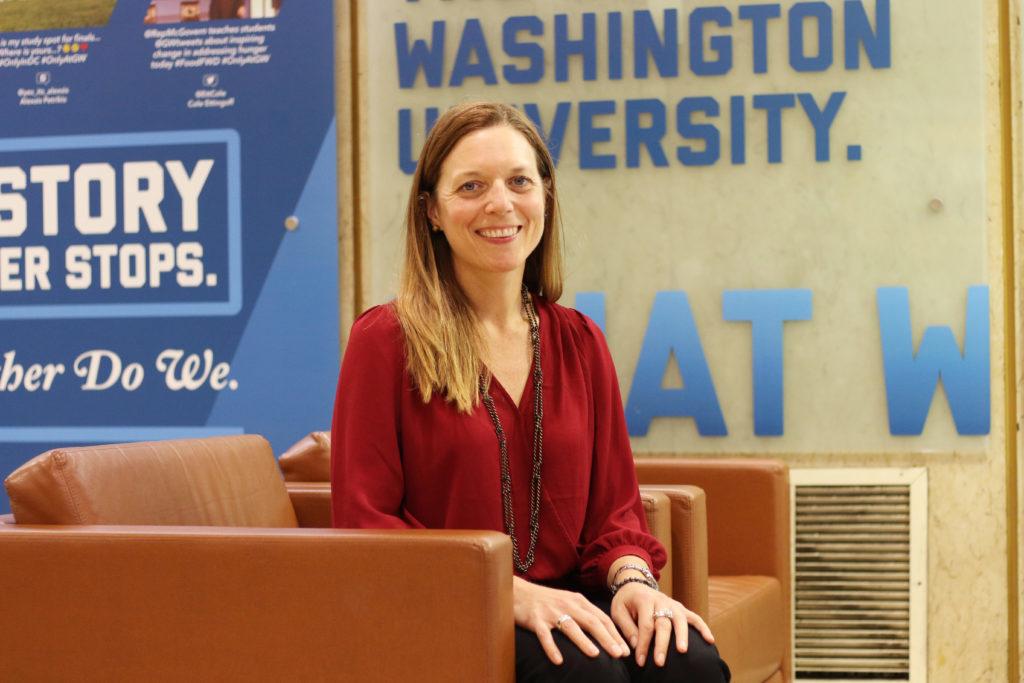The Office of Sustainability is working to add 12 office spaces to an existing network of academic departments and administrative and research centers this semester.
The Green Office Network – a coalition of administrative offices and academic departments that work to meet office-set sustainability requirements, like cutting back on water and electricity usage – is aiming to grow the number of offices involved in the group. Sustainability experts said university sustainability offices need to encourage as many faculty, staff and students to adopt greener habits by expanding their presence.
“Workplace sustainable practices have a positive impact on both the planet and people,” sustainability office director Meghan Chapple said in an email.
The Green Office Network was instituted in 2014 to incentivize University offices to become more sustainable. As of last September, the sustainability office has certified more than 50 offices across campus for adopting more sustainable purchasing, energy and electricity, transportation, printing and paper, waste reduction and kitchen and indoor environment practices.
So far, Chapple said the Sigur Center for Asian Studies and the fourth floor of 1922 F St. – which includes the Office of the Vice President for Research – are the most recent additions to the network. Chapple added that two other offices are currently completing the certification process but did not specify which offices.
The leader must fill out a checklist detailing the office’s progress in reaching sustainability goals, like decreasing water consumption levels, the sustainability office’s website states. Offices receive a rating from their green leader between one leaf – the lowest level of certification – and four leaves – the highest level – depending on how many objectives from the checklist they fulfill, according to the website.
Offices looking to join the program must nominate one of their members to be a “green leader” who will oversee the office’s sustainability efforts, according to the sustainability office website.
After scheduling a preliminary meeting with sustainability office members, green leaders can download and fill out the checklist for their office. Once the green leader fills out the checklist, they must schedule time with a representative from the sustainability office to walk through the office before officially receiving the certification, the website states.
Chapple said an office can begin the certification process to join the network at any point during the academic year, and certified offices annually apply for recertification. She said green leaders in University offices can take initiative to encourage sustainable practices, like switching to electronic forms and Google Drive to reduce paper usage.
“Individuals can directly impact the behaviors and actions of their respective offices and building spaces and use the Office of Sustainability as a resource to create sustainable change,” she said.
Chapple said the sustainability office promotes the network on the office’s blog, newsletter and through word of mouth. She added that members of the sustainability office encourage students to check if the University offices they frequent have the certification.
“The Green Office Network was created to engage staff and faculty in the University’s sustainability efforts such as reducing energy usage and diverting landfill waste,” Chapple said.
Allison Mihalich, the senior program director of sustainability at the University of Notre Dame, said university offices and departments that set an example with demonstrated commitment to sustainability boost student involvement in sustainability efforts.
In August, incoming students received water bottles from the company Cupanion, complete with a scannable barcode tag that tracks how many single-use water bottles students and GW collectively save.
“You’re leading from where you are by embracing these goals and having faculty and staff joining green office networks I think is really powerful, because it sends a message to students that sustainability matters,” Mihalich said.
She added that universities should encourage students to inquire about whether the offices and departments they frequent have joined the school’s sustainable office network. Mihalich said students can embolden the offices to become more sustainable through their own input.
“If the student encourages the faculty or staff member, office or department to join, it goes a long way because the office realizes, ‘Hey, this matters to the student enough that they noted it and brought it up,’” Mihalich said.
Emily Quinton, the sustainability education and outreach coordinator at Portland State University, said university offices need to engage as many faculty, staff and students as possible in sustainability efforts to maximize universities’ impact on increasing sustainability.
“Individual behaviors do add up and create a collective impact,” she said.





